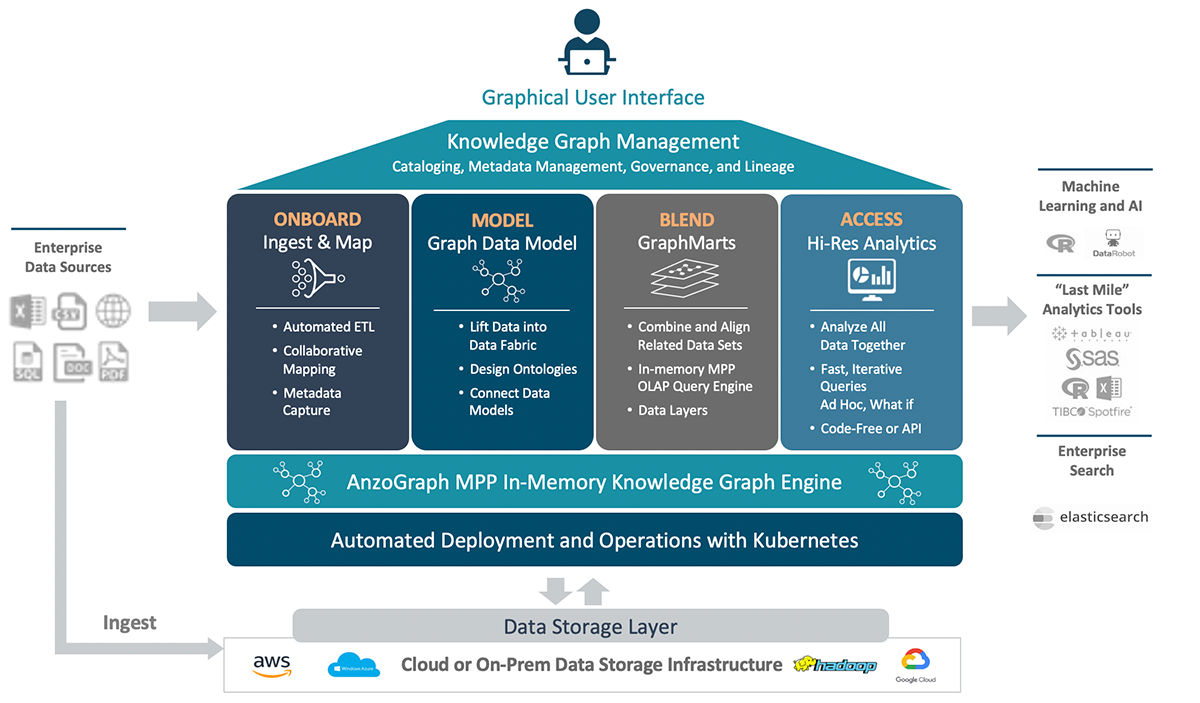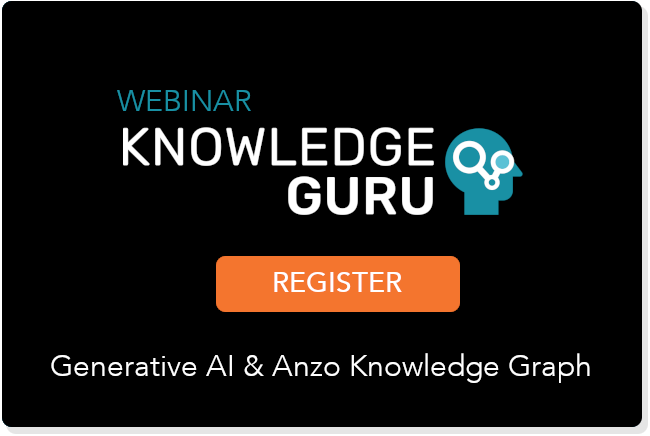The scaleable knowledge graph platform
for data integration and analytics.
Anzo makes turning siloed data into enterprise-scale knowledge graphs
faster and easier than ever. From there, anything’s possible.

Anzo is a complete knowledge graph platform built on a high-performance graph database engine, called AnzoGraph, that uses an in-memory MPP processing paradigm to execute queries against datasets extremely quickly, enabling agile data integration, transformation, and analytics at enterprise scale. Anzo leverages standards including W3C’s RDF, OWL, SKOS, and SPARQL to combine knowledge graphs of metadata and data which can be powerfully explored, transformed and analyzed, while also ensuring open data interoperability and easy integration with other systems. Anzo is an open overlay platform that allows users to assemble knowledge graphs against the underlying data resources without displacing or disrupting existing processes or platforms. Anzo integrates with enterprise metadata, governance, security controls and policies, and includes APIs for lights-out integration into other processes.


